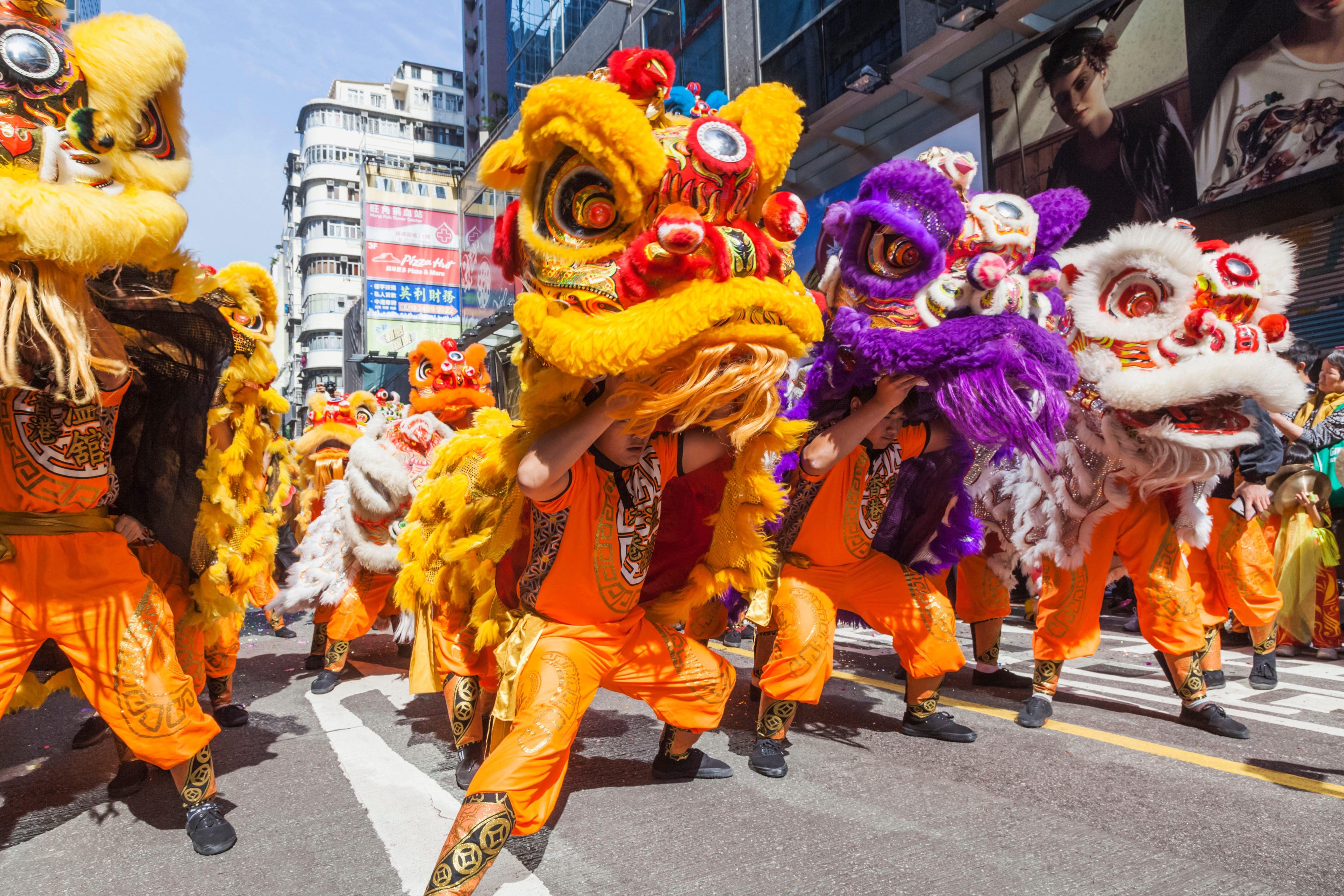Stepping into the year 2003, people around the globe who follow the lunar calendar prepared for a special moment of new beginnings and fresh starts. This particular year brought with it the gentle, thoughtful spirit of the Chinese zodiac's eighth animal, the Sheep, also known as the Goat or Ram, which is, you know, quite interesting. It was a time when traditions, deeply rooted in history and belief, truly took center stage, marking a period that many looked forward to with a sense of hope and community.
Every cycle in the Chinese calendar brings a different animal sign, paired with one of the five elements – wood, fire, earth, metal, or water. For 2003, the element tied to the Sheep was water, creating a unique combination known as the Water Sheep or Water Goat. This pairing, so, actually, shapes the characteristics and general feel of the year, influencing those born within its span in very particular ways.
This annual shift is more than just a date on a calendar; it is a moment for families to gather, for good wishes to be shared, and for a general sense of renewal to wash over communities. The arrival of the Water Goat in 2003, for instance, carried with it a special set of energies and predictions for what the next twelve months might hold, influencing daily life and personal paths for many.
Table of Contents
- What Was the Chinese New Year 2003 Animal?
- When Did Chinese New Year 2003 Start?
- What Does Being a Water Goat Mean?
- Traits of the Water Sheep in Chinese New Year 2003
- The Chinese Calendar and the Year 4701
- The Cultural Significance of the Chinese New Year 2003
- How Does Language Connect to Chinese New Year 2003?
- The Richness of Chinese Language and Culture
What Was the Chinese New Year 2003 Animal?
The year 2003, as per the Chinese zodiac, was indeed the year of the Sheep. Now, this animal sign is, you know, often referred to by a couple of different names, depending on where you are or the particular translation being used. So, it is very commonly called the Goat, and also, sometimes, the Ram. All these names point to the same animal that holds the eighth spot in the twelve-year animal cycle that makes up the Chinese zodiac.
People who look into these things say that each animal sign carries its own special set of qualities and ways of being. For the Sheep, Goat, or Ram, these qualities often lean towards a gentle nature, a kind spirit, and a love for peace. It is, basically, a sign that suggests a preference for calm and harmony over conflict, making it a rather interesting animal to have as the emblem for a whole year.
Beyond just the animal, the year 2003 also had a specific element tied to it. According to the Chinese five elements system, which includes wood, fire, earth, metal, and water, 2003 was connected with the water element. This combination of the Sheep and water creates the "Water Sheep" or "Water Goat," a very distinct blend that shapes the overall feel of the year and the personalities of those born within it.
- Kenia Gascón
- Trooper Thorns Reading Pa
- Drew Barrymore Fitness
- Hotels Near San Ramon Golf Club
- Wasmo Somali Telegram Link 2024
The idea of the "Black Sheep" is also mentioned in connection with 2003. This is just another way of describing the Water Sheep or Ram, perhaps highlighting a specific shade or aspect of its character. So, really, whether you hear it called the Water Sheep, Water Goat, or Black Sheep, it all refers to the same gentle, water-influenced animal that marked the year 2003 in the Chinese calendar.
When Did Chinese New Year 2003 Start?
The start date for the Chinese New Year can, in a way, be a little bit tricky because it follows the lunar calendar, which is different from the solar calendar we often use. For 2003, the Lunar New Year, which is when the Water Goat year truly began, started on January 31st. This specific date marked the moment when the old year gave way to the new, bringing in all the fresh energies of the Water Goat.
However, it is also very often said that the Chinese New Year celebrations, the big public ones, began on February 1, 2003. This might be because the main festivities often kick off around that time, even if the astronomical start of the lunar year was a day earlier. So, basically, both dates are mentioned as important for the start of the year's events and the shift in the zodiac sign.
This period of transition from one zodiac animal to the next is quite important for people who follow Chinese astrology. If someone was born in 2003, for instance, their zodiac sign depends on whether they arrived before or after this specific start date of the lunar year. So, if a person came into the world before January 31st, 2003, they would still fall under the sign of the previous year, which was the Horse.
The year of the Water Goat, which started on January 31st or February 1st, 2003, then ran its course for a full lunar cycle. It continued all the way until February 21, 2004. This means that the influence of the Water Goat was felt for a good long stretch, shaping the experiences of those born during this time and the general atmosphere of the year itself, you know, for everyone.
What Does Being a Water Goat Mean?
Being born as a Water Goat, which is the sign for those who arrived in 2003, carries with it some rather distinct qualities, according to Chinese astrology. The Goat, as an animal sign, is generally thought of as having a gentle, kind, and artistic spirit. They often appreciate beauty and harmony, and they tend to be quite compassionate towards others. So, in some respects, they are seen as peacemakers.
When you add the water element to the Goat, it tends to make these qualities even more pronounced. Water is often associated with sensitivity, intuition, and a deep sense of feeling. It can also bring a certain adaptability and a flow to one's character. So, a Water Goat might be even more empathetic and understanding than other types of Goats, really. They might also be very good at sensing the moods and feelings of those around them.
One specific quality that is mentioned for Water Goats is the need for them to make sure they respect their promises. This suggests a strong sense of integrity and a belief in keeping one's word. It points to a character that values trust and reliability, which is, actually, a pretty good thing to have. This quality might mean they are very dependable friends and colleagues, always trying to do what they say they will.
The influence of water on the Ram sign also brings a certain flexibility and an ability to adjust to different situations. Water can flow around obstacles, and in a similar way, a Water Goat might be able to find creative solutions to problems or navigate changes with a bit more ease. They might also have a very rich inner world, full of thoughts and feelings that they process deeply, you know.
Traits of the Water Sheep in Chinese New Year 2003
People born under the sign of the Water Sheep in 2003 are often thought to possess a collection of qualities that make them quite unique. Their personality is generally described as gentle and kind, with a natural inclination towards peace and quiet surroundings. They are not usually ones to seek out arguments or loud disagreements; rather, they prefer a calm and pleasant atmosphere, which is, you know, quite understandable.
The Water Sheep also tends to have a creative side. They might find joy in various forms of art, like painting, music, or writing, or simply have a good eye for beauty in their everyday lives. This artistic streak is often paired with a deep sense of compassion, making them very caring individuals who are sensitive to the needs and feelings of others. They are, basically, good listeners and offer comfort to those around them.
A notable trait for those born in this specific year is the importance of keeping their word. The text says they need to make sure they respect their promises. This suggests a strong moral compass and a deep value placed on honesty and trustworthiness. It means they are likely to be reliable and loyal friends, family members, and co-workers, someone you can count on, really.
Beyond these general traits, Chinese astrology also talks about things like a person's love match, their lucky numbers, specific colors that bring them good fortune, and even certain flowers that are considered auspicious for them. While the exact details for the Water Goat are not listed here, the concept of these lucky elements is a significant part of understanding the sign and its connection to a person's life path, so, in a way, it gives a fuller picture.
The Chinese Calendar and the Year 4701
The Chinese calendar system is, you know, a very old and interesting way of keeping track of time, different from the Western calendar. The year 2003, which was the year of the Water Goat, is also referred to as the 4700th Chinese year in some records, and sometimes as the 4701st in others. This slight difference in numbering might come from different ways of counting the start of the calendar's long history.
This ancient way of marking years has roots that go back, basically, thousands of years. There's a belief in Chinese culture that the very first king of China was the Yellow King. Now, it is important to remember that he was not the first emperor of China who completed the Great Wall, but an earlier, legendary figure. This historical depth gives the calendar a very rich cultural background.
The Chinese zodiac itself is a cycle of twelve animals, each representing a year. The Goat, Sheep, or Ram holds the eighth position in this cycle. This means that after the Goat year, there will be four more animal signs before the cycle starts over again with the Rat. This continuous cycle means that every twelve years, the same animal sign returns, though with a different element, making each iteration unique.
The calendar is not just about the animal signs; it also includes lunar dates, the 24 solar terms, and various Chinese holidays and festivals that happen throughout each month. So, for 2003, the Chinese calendar would show all these important dates, providing a complete guide to the year's events and agricultural seasons. It is, basically, a comprehensive system that guides many aspects of life.
The Cultural Significance of the Chinese New Year 2003
The Chinese New Year, including the one in 2003, is much more than just a change of date; it is a deeply meaningful time for millions of people. It is a period for families to come together, often traveling great distances to share meals, exchange gifts, and, you know, just spend time with loved ones. This gathering is a very important part of the celebration, strengthening family bonds.
The celebration of the new year is also a chance to honor ancestors and deities, bringing good fortune for the coming months. People often clean their homes thoroughly before the new year begins, sweeping away any bad luck from the past year to make room for good luck. This practice is, basically, a symbolic way of preparing for a fresh start.
During the Chinese New Year, there are many customs that people follow. These can include decorating homes with red paper cuttings and lanterns, which are believed to bring happiness and prosperity. There are also special foods eaten that symbolize different kinds of good fortune, like dumplings for wealth or long noodles for a long life. These traditions are passed down through generations, really.
The specific animal sign of the year, like the Water Goat in 2003, also holds cultural significance. People might consider the traits of the Water Goat when thinking about the year ahead, hoping to embody its positive qualities or understand its influences on world events. It's a way of connecting personal lives to a larger cosmic pattern, so, in a way, it gives a sense of place in the universe.
How Does Language Connect to Chinese New Year 2003?
When we talk about something as culturally rich as the Chinese New Year, it is, you know, impossible to overlook the role of the Chinese language itself. The words, phrases, and greetings used during this festive period are deeply tied to the meaning and traditions of the celebration. The language carries the weight of history and the nuances of cultural expression.
Chinese, often referred to as "Han language" or "Zhongwen," is not just one single language but a group of languages spoken by the ethnic Han people. This group includes many different varieties, which are commonly called dialects, though some are so different they are, basically, separate languages. Mandarin, for instance, is the official language of China and is the most widely spoken form globally.
The way people express good wishes for the new year, the songs they sing, and the stories they tell are all conveyed through these languages. For example, specific phrases wishing prosperity or good health are exchanged, and these phrases often have a deeper meaning or a play on words that is only truly appreciated by someone who understands the language, really.
With about 1.35 billion people speaking some form of Chinese, mainly in places like the People's Republic of China, Taiwan, Singapore, and other parts of Southeast Asia, the language is a huge part of cultural identity. The celebration of Chinese New Year, therefore, becomes a powerful moment for linguistic connection, where shared words reinforce shared heritage, so, actually, it's quite a bond.
The Richness of Chinese Language and Culture
Chinese is, you know, one of the oldest languages in the world, and it serves as a truly rich way of expressing thousands of years of history, deep thoughts, and cultural practices. It's like a finely woven cloth that holds together so many aspects of Chinese civilization. This long history means that the language has developed many layers of meaning and expression.
With around 1.1 billion native speakers, the reach of Chinese is quite vast. From Mandarin, which is the standard, to other varieties like Yue (which includes Cantonese), there is a wide range of ways people communicate. Learning about these different forms helps one to, basically, get a better sense of the cultural diversity within China itself and among Chinese communities worldwide.
The written part of Chinese, with its unique characters, is also a big part of its cultural value. Each character often carries a meaning or a story, and learning them is a path into understanding the way Chinese thought is structured. These characters are used in everything from ancient texts to modern-day signs, connecting past and present in a very visual way.
Exploring the nature of Chinese, its many dialects, and its cultural importance is a journey in itself. It is not just about words and grammar; it is about understanding a way of seeing the world that has been shaped over centuries. So, in a way, the language itself is a living piece of the cultural heritage that is celebrated during events like Chinese New Year.
The Chinese language is a group of languages used by Chinese people in China and elsewhere. It is important to know that Chinese exists in a number of varieties that are popularly called. This means that while there's a common thread, there's also a lot of regional variation, which is, actually, pretty common in languages that have been around for a very long time.
Modern standard Chinese, which is the official language of China, is the most widely spoken language in the world, by a long shot. This makes it a significant language on the global stage. It is, basically, a key to understanding a huge part of the world's population and their ways of life.
The question of whether Chinese is a single language or a family of languages is a topic that scholars discuss, but for most people, it's enough to know that there are many forms. Understanding this helps when you are, for instance, trying to learn HSK vocabulary or looking up Chinese words, as you need to be aware of the specific variety you are engaging with.
The language helps people level up their Chinese language skills through extensive learning material, showing examples and helping with pinyin or English translations. This makes it possible for people to connect with the culture and traditions, including those of Chinese New Year 2003, on a much deeper level, you know.
Related Resources:



Detail Author:
- Name : Mr. Nicola Stroman DVM
- Username : rdaugherty
- Email : zboncak.jackie@hotmail.com
- Birthdate : 1990-10-09
- Address : 57252 Elmore Flat East Jacyntheside, AZ 05599
- Phone : 385-750-7912
- Company : Hodkiewicz, Ledner and Kulas
- Job : Sociologist
- Bio : Molestias non illo unde qui qui. Sequi assumenda facilis eius qui sint suscipit necessitatibus. Cum ut ea aut natus deserunt quod earum. Consequatur consequatur consequatur dolore beatae repudiandae.
Socials
twitter:
- url : https://twitter.com/bogisich2000
- username : bogisich2000
- bio : Est ut facilis beatae iste dignissimos. Aperiam doloremque voluptatem ipsa iure officiis qui veniam. Et ut fugiat eos architecto vel.
- followers : 2842
- following : 2867
linkedin:
- url : https://linkedin.com/in/jaime_official
- username : jaime_official
- bio : Animi itaque officiis soluta.
- followers : 5091
- following : 2084